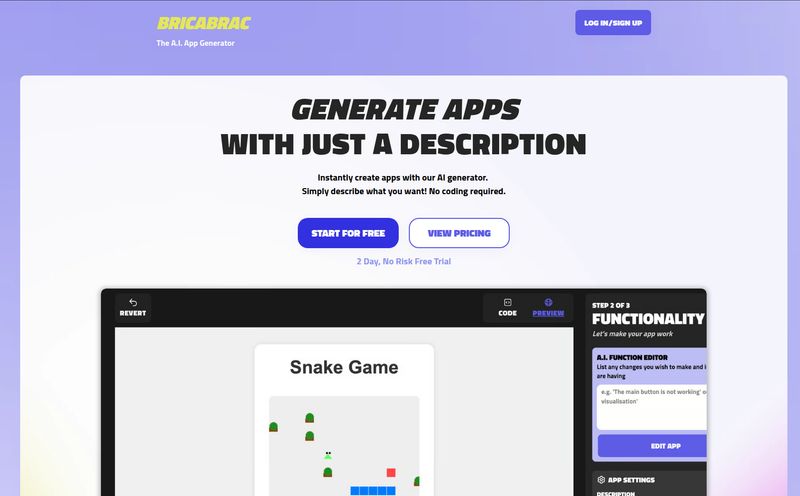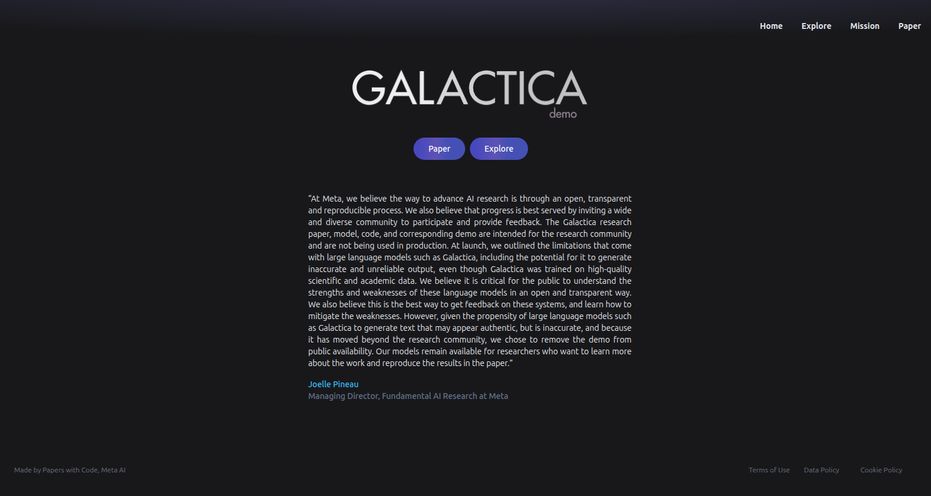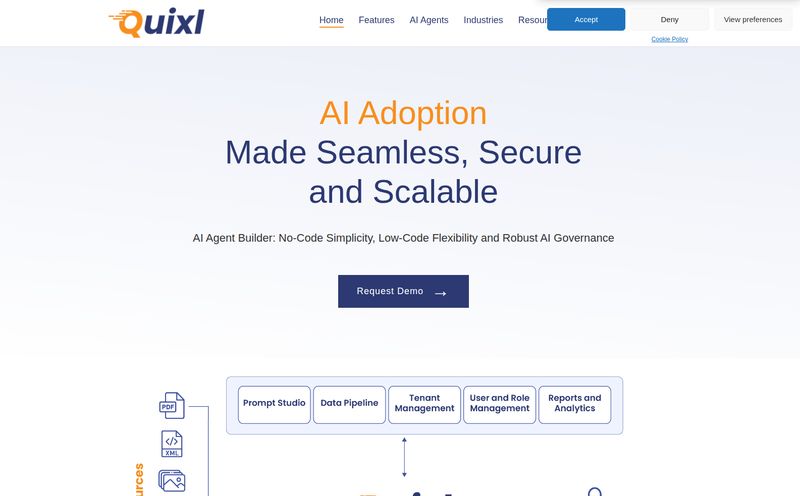We’ve all been there. It’s 2 AM, you’ve got a weird twitch in your eye or a cough that just won’t quit, and you fall down the rabbit hole of Googling your symptoms. Ten minutes later, you've convinced yourself you have a rare, incurable disease from the 18th century. It’s a rite of passage in the internet age, right? But what if there was a smarter, more focused way to get health information?
I spend my days eyeballs-deep in SEO, traffic, and how people search for things online. And let me tell you, health is one of the biggest, most emotionally charged topics out there. So when a tool like 0xmd pops up on my radar, claiming to be an AI-powered medical and health platform, my curiosity goes into overdrive. Is this just another gimmick, or is it something that could genuinely change how we manage our own health information? Let's take a look.
So, What's the Deal with 0xmd?
First off, 0xmd isn't just a simple symptom checker. It's positioned as an AI technology company building what they call medical and health Large Language Models (LLMs). Think of it like ChatGPT, but one that went to medical school. The whole point is to enhance how we and our doctors handle health, from understanding weird symptoms to analyzing complex reports.
And they seem to have some serious backing. I noticed they're part of the Incubation Programme at HKSTP (Hong Kong Science and Technology Parks) and were showcased at the NVIDIA Inception Showcase. For us tech folks, seeing the name NVIDIA involved definitely raises an eyebrow – they’re the powerhouse behind a lot of the AI revolution. It adds a layer of credibility that you don’t always see with new platforms.
A Look Under the Hood: The 0xmd Toolkit
So what's on the menu? 0xmd rolls out a suite of tools that seem to target some of the most common pain points we face when dealing with health stuff. It’s not just one thing, but a whole dashboard of helpers.
The AI Health Chatting: Your Personal Medical LLM?
This is the core of the platform. The 'Medical Large Language Models' feature lets you ask health questions in plain language. The example they give is “Diet suggestions for diabetes?” This is a massive leap from just typing keywords into a search bar. It feels more conversational. My hope for something like this is that it can provide nuanced answers, understanding the context of your question. A far cry from the disjointed forum posts and scary articles we usually find.
From Grocery Store to Gut: The Food and Medicine Scan
Okay, this is pretty cool. You can apparently scan a food item or a medicine label, and the AI will break down the ingredients, nutritional information, and other details. For anyone with allergies, dietary restrictions, or who is just trying to make healthier choices, this could be a game-changer. No more squinting at tiny print on packaging or trying to figure out what “Cholecalciferol” is (it’s Vitamin D3, by the way). Its a small feature that could have a big impact on daily habits.
Decoding Your Doctor's Scribbles: Health Check Report Scan
I’ve always felt that getting your lab results back is a two-part experience: first, the relief that you got them, and second, the utter confusion of trying to figure out what they mean. All those acronyms and numbers... it's like a secret code. 0xmd claims its AI can read your health check reports, analyze the data, and give you key insights in plain English. Now that is a service I can get behind. It empowers you to have a more informed conversation with your actual doctor.

Visit 0xmd
That Weird Rash… The Skin Disease Detection Tool
This is where things get interesting, and also where my internal caution alarm starts ringing. The platform has a 'Medical Vision AI' to detect skin diseases from an image. You take a picture of a mole, rash, or weird spot, and the AI gives you information. The potential here is huge for early detection. But, and this is a huge but, it absolutely cannot replace a dermatologist. I see this as a tool to prompt a doctor's visit, not to avoid one.
Seeing the Unseen: Medical Imaging Analysis
This feature feels more geared towards professionals, but it’s still fascinating. The AI is designed to analyze medical imaging like X-rays, CT scans, and MRIs to help detect common diseases. For the average person, this isn't something you'd use daily. But it shows the ambition of the platform—they’re not just building a consumer toy, they're aiming to build tools that could one day assist radiologists and doctors in their workflow. This is where AI in medicine gets really powerful.
Let's Talk Brass Tacks: The Good, The Bad, and The Cost
No tool is perfect, especially not in a field as sensitive as health. After looking through everything, here’s my breakdown.
On the plus side, the accessibility is fantastic. Having a suite of AI-driven health tools in one place, supporting over 50 languages, is a big deal. It could democratize health information for a lot of people. The potential to turn confusing medical data into understandable insights is probably its biggest strength. It’s like having a super-smart medical librarian in your pocket.
However, we have to talk about the limitations. The company is very clear with its disclaimer: 0xmd is neither a doctor nor a practitioner of medicine. The information provided on 0xmd is intended for informational, research, educational, and reference purposes only. Always seek the advice of a qualified healthcare professional. I can't stress this enough. This is a tool for information, not diagnosis. Let's be real, AI can be wrong, and when it comes to your health, 'oops' isn't an option. You also need an internet connection, which might be a barrier for some.
As for the price? I couldn't find any clear pricing information on their main page. This often means the platform might still be in a beta phase, or they’re targeting enterprise clients (like clinics or hospitals) with custom pricing. We’ll have to wait and see how they structure it for individual users.
An SEO Guy's Take: How This Changes Health Searches
From my professional perch, tools like 0xmd represent a major shift. For years, Google has been pushing the importance of E-E-A-T (Experience, Expertise, Authoritativeness, and Trustworthiness), especially for health content. They want to make sure the information you find is reliable.
An AI like 0xmd is both a challenge and an opportunity for that model. It's not a human expert, but it's trained on vast amounts of expert medical data. The trust factor is everything. If 0xmd can prove its reliability and maintain its strong 'we are not a doctor' stance, it could become a trusted first stop for people, fundamentally altering search behavior from keyword-based queries to conversational, intent-driven interactions. For us content creators in the health space, it means we need to provide even more value, experience, and human perspective that an AI can't replicate.
So, Should You Try 0xmd?
My final verdict? I'm cautiously optimistic. I think 0xmd is an incredibly promising tool for the health-curious individual. It’s for the person who wants to understand their body better, make more informed food choices, and prepare for a doctor's appointment with good questions in hand.
Use it as a powerful research assistant. Use it to translate medical jargon. But please, please don't use it to self-diagnose and skip a visit to a real, human healthcare professional. Technology is an amazing supplement to our health, but it's not a substitute for professional care. Not yet, anyway.
Frequently Asked Questions about 0xmd
Can 0xmd replace my doctor?
Absolutely not. The platform itself makes it very clear that it is an informational tool only. It is not designed for diagnosis or to replace the advice of a qualified medical professional. Think of it as a tool to help you prepare for your doctor's visit.
Is the 0xmd platform free to use?
The website doesn't currently display pricing information. This could mean it's in a beta testing phase or that they have a different pricing model, perhaps for businesses. You may have to sign up or contact them to find out more.
How accurate is the AI?
While trained on extensive medical data, no AI is 100% perfect. Accuracy can vary. It's best to use the information as a starting point and cross-reference anything concerning with a healthcare provider, especially for features like skin disease detection.
What kind of tools does 0xmd offer?
It offers a suite of AI tools including a health-focused chat (LLM), a scanner for food and medicine labels, a tool to analyze health check reports, a skin disease detection feature, and medical imaging analysis capabilities.
What languages does 0xmd support?
The platform is impressive in its reach, supporting over 50 languages. This makes it accessible to a wide global audience.
Final Thoughts
The line between technology and our personal health is getting blurrier every day, and 0xmd is sitting right on that line. It’s exciting, a little scary, and full of potential. It won't be replacing your family doctor anytime soon, but it might just replace your 2 AM symptom-Googling habit with something a whole lot smarter. And for our collective peace of mind, that might be a very good thing.
Reference and Sources
- All platform information and features sourced from the official 0xmd Website.
- Information on the incubation program from Hong Kong Science and Technology Parks (HKSTP).
- Context on AI startup support from NVIDIA Inception Program.
- General principles on health content quality from Google's guidelines on Experience, Expertise, Authoritativeness, and Trustworthiness (E-E-A-T).



